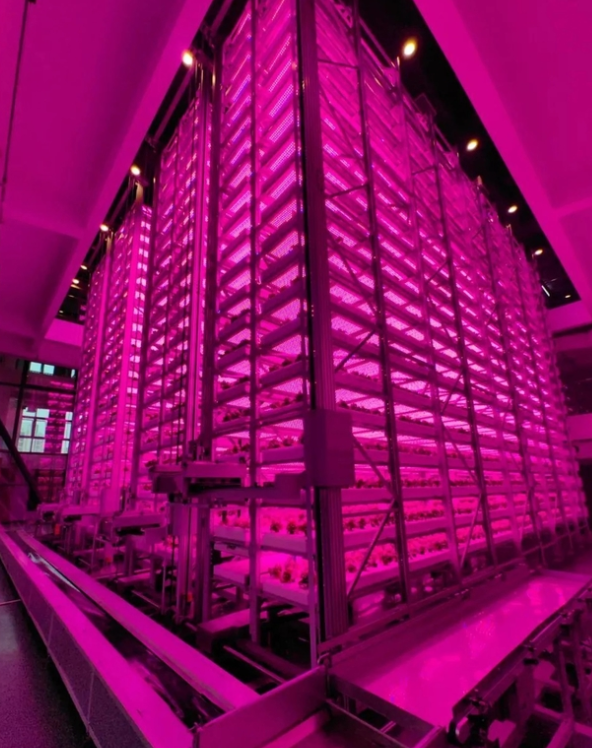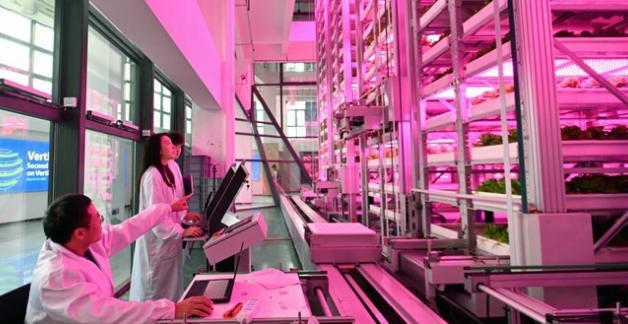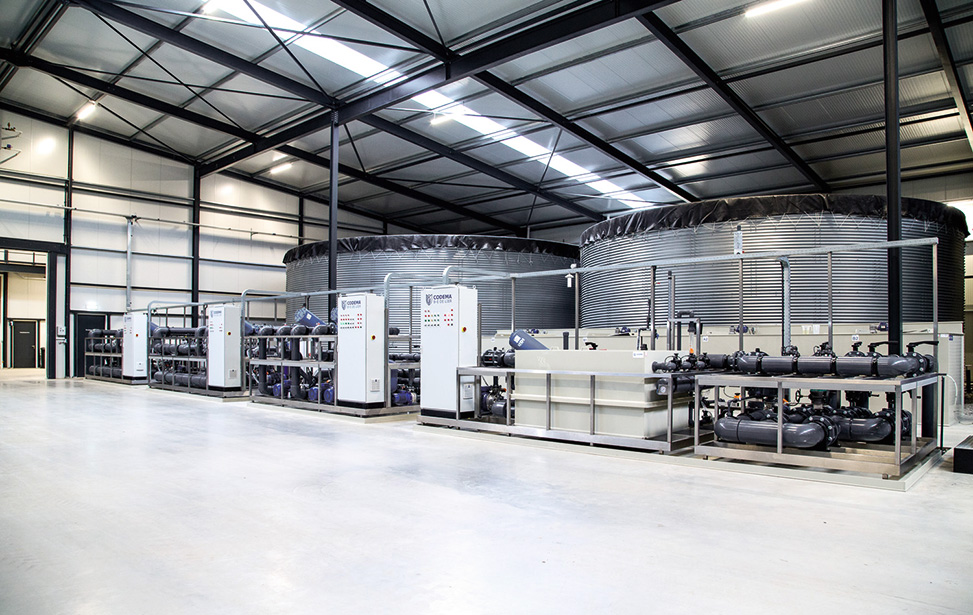#Agriculture #VerticalFarming #PrecisionFarming #SustainableAgriculture #AgriculturalInnovation #FoodSecurity #ChineseAgriculture #TechnologyinAgriculture #FarmingTrends #UrbanAgriculture
In the bustling city center of Chengdu, China, a remarkable 20-story vertical farm stands as a testament to the country’s commitment to leading the world in agricultural automation. This ambitious project, under the supervision of the Chinese Academy of Agricultural Sciences, aims to address the pressing need for innovative farming methods to ensure an ample food supply for China’s vast population amidst concerns over political tensions affecting imports and supply chains.
Vertical farms, a growing trend in countries like Japan, Singapore, and the United States, prove to be efficient cultivation systems, allowing year-round food production in stacked containers. These farms offer a significant advantage by enabling agriculture in diverse environments, from urban areas to deserts, providing stable food sources for traditionally challenging regions.
During the Central Committee for Financial and Economic Affairs in July 2023, Chinese President Xi Jinping highlighted threats to the nation’s food security, including abandoned agricultural land, soil erosion, land degradation, and over-exploitation of groundwater. Emphasizing the necessity of urban and arid agriculture, President Xi praised notable agricultural achievements in provinces like Sichuan and the autonomous region of Xinjiang, known for their harsh climates.
“Through a series of technological upgrades and infrastructure development, previously unsuitable lands for agriculture can now be utilized,” stated President Xi Jinping during the meeting.
The vertical vegetable farm in Chengdu, as reported by CCTV, incorporates advanced technologies such as automated planting of crops, three-dimensional vertical cultivation systems, automatic nutrient supply systems, energy-efficient simulated natural lighting, and artificial intelligence (AI) control systems. These technologies ensure stable production in the vertical space, contributing to the nation’s food security.
China, underlining its commitment to providing resources for agricultural cultivation, encourages the application of precision farming and industrialization in agriculture as outlined in “Central Resolution No. 1,” published in February 2023, with a focus on rural development.

Notably, the Chengdu vertical farm, unaffected by weather conditions and geographical limitations, requires only 35 days to produce each crop of spinach continuously in a controlled environment. State media reports that various leafy greens, fruits, and edible fungi can be mass-produced in vertical farms.
Previously, researchers often had to travel to tropical regions like Hainan Province in southern China during winter to expedite the breeding process. However, the automated vertical farm in Chengdu accelerates this process through a rapid breeding accelerator.
This technology, unrestricted by soil conditions, space, and climate, precisely regulates light and nutrient conditions, significantly shortening plant growth cycles. Chinese scientists assert that crops grown in vertical farms have nutritional content comparable to those cultivated in traditional soil.
With continuous technological advancements, China is increasingly engaging in non-traditional agricultural activities on non-arable land. The country has also constructed high-rise pig farms in places like Hubei Province and cultivated rice in salt deserts in Xinjiang, supported by advanced technologies.
In August 2023, Xinjiang announced a technological breakthrough in aquaculture, successfully breeding freshwater fish, abalones, shrimp, and crayfish in a desert-edge fishery.
China’s venture into vertical farming signifies a pivotal moment in global agriculture, addressing critical issues like food security, land use, and sustainable farming practices. As the nation embraces advanced technologies, it sets an example for the world in revolutionizing traditional agricultural norms.












